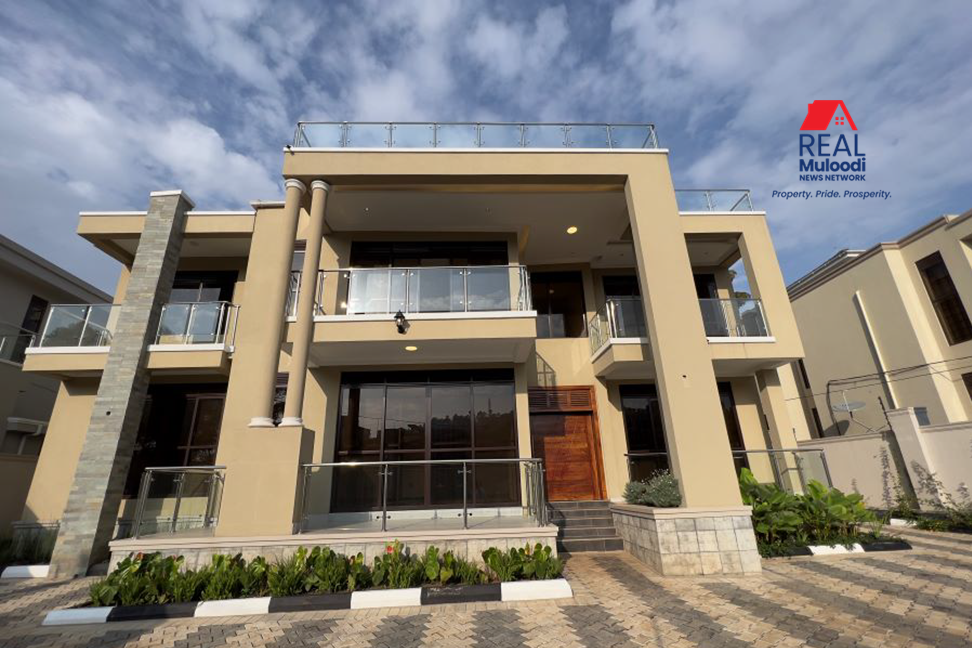UGANDA, Kampala | Real Muloodi News | The real estate market in Uganda is poised for transformative growth in 2025, driven by urbanization, infrastructure development, and evolving buyer preferences. Understanding these 2025 real estate trends is essential for developers and investors aiming to meet market demands and capitalize on emerging opportunities.
Demand for Affordable Housing
Uganda faces a significant housing deficit, with over 2.4 million units needed nationwide. Urbanization is projected to increase, particularly in cities such as Kampala, Wakiso, and Entebbe, further intensifying the annual demand for 210,000 new housing units.
Affordable housing remains a priority for low- and middle-income earners. Developers are increasingly offering options in strategic locations with flexible payment plans. Projects like Katende Estate along Masaka Road cater to these needs by providing affordable land with ready titles, aiming to bridge the gap in accessible housing.
Rise of Mixed-Use Developments
The growing demand for integrated living solutions has spurred the development of mixed-use properties. These combine residential, commercial, and recreational spaces, enabling people to live, work, and shop within a single area.
In 2025, areas like Nansana and Mukono are expected to see increased activity in mixed-use developments. These projects align with urbanization trends by offering convenience and lifestyle amenities in one location, making them appealing to investors and homebuyers.
Infrastructure as a Growth Catalyst
Infrastructure projects remain a significant driver of Uganda’s real estate market. Ongoing developments such as the Kampala-Jinja Expressway and plans for the AFCON 2027 stadium near Hoima Road are expected to boost property demand along these corridors.
Strategic land investments along major routes, including Hoima Road, Masaka Road, and Entebbe Road, are gaining traction due to enhanced accessibility and potential for capital appreciation. Developers are positioning themselves in these areas to leverage future growth.
Adoption of Digital Tools in Real Estate
Digital transformation is reshaping the real estate sector in Uganda. Online platforms for marketing, property management, and sales are becoming more prevalent, streamlining transactions for buyers and sellers alike.
In 2025, digital solutions such as virtual property tours, online payments, and property listings will dominate the market. These innovations aim to enhance transparency and convenience in property acquisition, creating a seamless experience for customers.
Sustainability in Housing
Environmental sustainability is gaining prominence in Uganda’s real estate market. Buyers increasingly seek eco-friendly properties with energy-efficient designs, solar power systems, and water-saving technologies.
In response, developers are incorporating green building practices into their projects. Sustainable housing not only addresses environmental concerns but also attracts buyers who prioritize long-term cost savings and environmental responsibility.
Growing Rental Market
With urban populations growing at an annual rate of 5.4%, rental properties are set to remain a strong focus in 2025. The demand for rental housing is particularly high in urban centers like Kampala, Wakiso, and emerging towns along key development routes.
Investors are targeting income-generating properties to capitalize on the rising demand. Developers offering well-planned rental units in high-demand areas are likely to benefit from this trend.
Key Statistics for Uganda’s Real Estate Market in 2025
- Housing deficit: 2.4 million units nationwide.
- Annual housing demand: 210,000 new units.
- Urban population growth: 5.4% annually.
- Mixed-use developments: Projected 20% increase in major cities.
- Rental market expansion: Continued growth in demand for rental properties.
Strategic Opportunities for Developers
The evolving trends in Uganda’s real estate market present opportunities for developers to address diverse housing needs. Affordable housing projects, mixed-use developments, and rental properties in prime locations are poised for growth.
Additionally, infrastructure-driven projects along major roads and sustainable housing initiatives are expected to attract buyers and investors. Adopting digital tools will further enhance customer experiences, positioning developers at the forefront of the market.
With strategic planning, developers can meet growing housing demands and create lasting value for stakeholders in the real estate sector.
READ MORE LIKE THIS:



